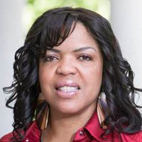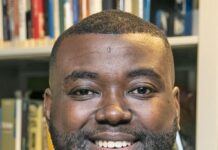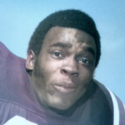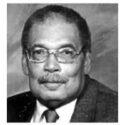A new study by researchers at Vanderbilt University and the University of Illinois at Chicago warns that Black students who are enrolled at selective predominantly White educational institutions face a serious mental health challenge.
 Ebony McGee, an assistant professor at Peabody College of Vanderbilt University in Nashville, Tennessee, and a co-author of the study, states that “weathering the cumulative effects of living in a society characterized by White dominance and privilege produces a kind of physical and mental wear-and-tear that contributes to a host of psychological and physical ailments.”
Ebony McGee, an assistant professor at Peabody College of Vanderbilt University in Nashville, Tennessee, and a co-author of the study, states that “weathering the cumulative effects of living in a society characterized by White dominance and privilege produces a kind of physical and mental wear-and-tear that contributes to a host of psychological and physical ailments.”
Dr. McGee adds that “we have witnessed Black students work themselves to the point of extreme illness in attempting to escape the constant threat of perceived intellectual inferiority. We have documented alarming occurrences of anxiety, stress, depression and thoughts of suicide, as well as a host of physical ailments like hair loss, diabetes and heart disease.”
 Co-author David Stovall, associate professor of African American studies and educational policy studies at the University of Illinois at Chicago, says that “those who are struggling with the multiple burdens associated with being a Black student must be protected against daily discrimination.”
Co-author David Stovall, associate professor of African American studies and educational policy studies at the University of Illinois at Chicago, says that “those who are struggling with the multiple burdens associated with being a Black student must be protected against daily discrimination.”
The authors conclude that “the process of healing from racial battle fatigue and institutional racism requires significant internal commitment and external support. Black college students are brilliant, talented, and creative, and they dream as big as other students. Pursuing higher education should not make them sick.”
The article, “Reimagining Critical Race Theory in Education: Mental Health, Healing and the Pathway to Liberatory Praxis,” was published in the journal Educational Theory. It may be accessed here.












The more things change the more . . .!
My doctoral dissertation in 1979 entitled: “Perceived Stress of Black Medical Students At Public and Private U.S. Medical Schools” reported on similar topics. Dr. McGee’s statement
” “we have witnessed Black students work themselves to the point of extreme illness in attempting to escape the constant threat of perceived intellectual inferiority” mirrors my findings. Again, the more things change the more . . .! Robert Lee, PhD
it truly is infuriating!!
And the stress continues once you enter the profession.
and guess what: voting for hillary won’t help!
I truly do not believe this is a New notion, it simply is now being researched. Thank you for doing this.
The results will be applicable to All who attend PWIs.
According to the Mismatch book, half of black undergrads rank in the bottom 20 percent with respect to grades.
If that’s going to be a mental health issue for you, then don’t go to a college where the vast majority of other students have better incoming credentials than you do.